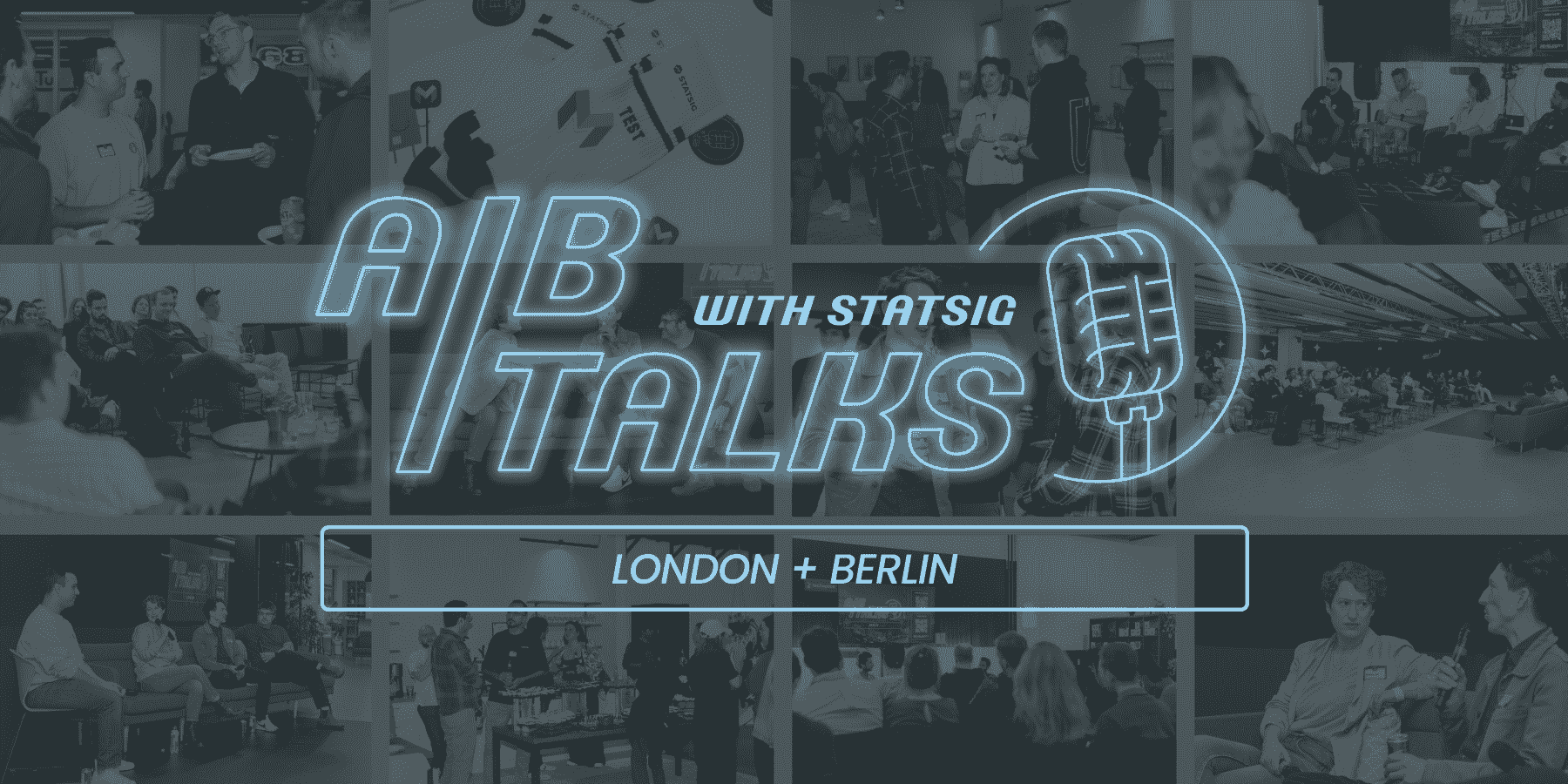
Earlier this month, the Statsig team crossed the pond to host events in Berlin and London. Marcos Arribas, Statsig's Head of Engineering, led panels in each city with leaders from Monzo, HelloFresh, N26, Captify, Bell Statistics, Babbel, and more. They discussed product development over food, drinks, and good vibes.
Check out our event recaps below and watch the recordings! Don't want to miss the next event? See where we will be next.
A/B Talks: London
TL;DR: Building a Data-Driven Culture The discussion emphasized the importance of creating a data-driven culture within teams and organizations through experimentation. Key points included the challenges and benefits of this approach, the role of management commitment, resource allocation, advanced testing methods, and balancing experimentation with user experience. Thanks to Monzo for hosting us in their beautiful event space!
Key Insights: Building a Data-Driven Muscle:
Establishing a data-driven culture requires more than hiring data scientists; it starts with organized data and robust engineering practices.
Standardizing definitions and metrics ensure reliable and comparable data-driven decisions.
Challenges in Data-Driven Environments:
Mature organizations must balance short-term gains with long-term impacts in their experiments.
The main challenge is often knowing the right questions to ask and framing problems correctly.
The Role of Leadership and Trust:
Leaders foster a data-driven culture by asking data-centric questions and rewarding data-focused behaviors.
Psychological aspects, such as creating the right incentives and showcasing successful data-driven decisions, are as important as technical aspects.
Experimentation and Decision-Making:
Effective experimentation requires careful design and consideration of network effects to reflect real-world conditions.
Balancing data with intuition enhances decision-making speed and efficiency without exhaustive data collection.
A/B Talks Berlin
TL;DR: Advanced Experimentation and Continuous Learning The discussions highlighted the necessity of committed management in supporting a culture of experimentation and the importance of the right tools and resources for A/B testing. Key Insights: Implementing a Culture of Experimentation:
Successful experimentation culture requires management commitment, as experimentation demands resources and time.
Advanced analytics capabilities, such as sequential and parallel testing, significantly enhance experiment effectiveness.
Balancing Risk and Innovation:
Organizations must balance risks associated with new experiments and features, especially considering potential public feedback on platforms like Twitter and Facebook.
Over-sampling can be beneficial as it allows for deeper data dives, ensuring issues are quickly identified.
User-Centric Product Development:
Building products with a user-centric approach involves collecting feedback throughout the development process and continuously iterating based on user insights.
An experimentation mindset helps validate ideas through minimum viable experiments, enabling faster and more efficient project development.
Metrics and Decision-Making:
Identifying key metrics, such as the Sean Ellis Score, helps gauge product-market fit and user satisfaction.
Long-term KPIs and historical data from past experiments provide valuable insights, aiding in the correlation between short-term and long-term outcomes.
What's next in our A/B Talks Series?
Both events underscored the importance of a strong data-driven culture, effective experimentation, and continuous learning. Leadership commitment, standardized practices, and a user-centric approach are crucial for success. Advanced analytics and careful balancing of risks further enhance the experimentation process, driving organizations toward informed and impactful decision-making. We are excited to take our show on the road. Read about all our upcoming events!
Get a free account

